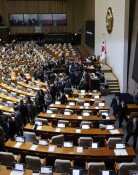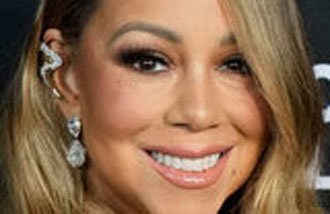Changes or judgments can be made only when votes are case
Changes or judgments can be made only when votes are case
Posted April. 05, 2024 07:45,
Updated April. 05, 2024 07:45
The early voting for the April 10 general elections will be conducted at 3,565 early voting centers across South Korea from Friday through Saturday. Anybody with an ID card can vote anywhere in the country without pre-registration. The early voting rate rose from 12.2 percent for the 2016 general elections to 26.7 percent for the 2020 general elections and to 36.9 percent for the 2022 presidential election, which was about half of the overall voting rating of 77.1 percent. According to a survey conducted by the National Election Commission, 41.4 percent of voters intending to vote for the upcoming general elections answered they would opt for the early voting option.
Early voting is a starting point for the final sprint toward the end of the general elections. Public opinion polls regarding the general elections cannot be revealed as of Thursday, the ruling and opposition parties are desperately trying to unite their supporters. The main opposition Democratic Party of Korea is trying to increase the early voting rate of its supporters on the belief that a high voting rate will lead to the party’s win. The ruling People Power Party is also encouraging early voting by people, even though it was previously hesitant due to some mistrust, by announcing that all party candidates will vote on the first day of early voting. With such trends, early votes may account for over half of all votes.
The upcoming general elections are unprecedentedly chaotic, with irresponsible pledges that will cause large tax spending, candidates at the center of corruption scandals, and rough words exchanged between the parties. While it is a global phenomenon that the democracy of today is struggling with non-liberal populism, South Korea is not an exception. Incitement for enthusiastic supporters and resulting hatred toward politics that cause incitement and anger is at an all-time high. Division and conflicts between regions, ideologies, and generations are also apparent.
Despite this, votes must be cast. Voting is not only a way of exercising one’s sovereignty but also a strong means to check political powers as an expression of collective opinions. There was a long history of fighting to earn the right to vote. A vote holds the power to change the future, whether it is passing judgment on the government, the opposition party, or the politics. In fact, a vote can change the election results. There will be several instances of close results where a winning candidate is decided by only a few votes during this year’s general elections as supporters of the ruling and opposition parties strongly unite within themselves.
Voting is the right and responsibility of voters. Voters should judge politicians and political parties that politely accept people’s opinions during the elections and turn away with their noses turned up once elected. That’s how we can bring changes in the future. While many are indifferent to politics, they, in particular, should cast votes. They must look at the election catalog delivered to their home and distinguish which candidates are the best, the second best, or even the lesser evil. If not all, they should cast an abstained vote to scold the sub-par politics.







